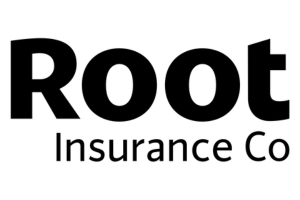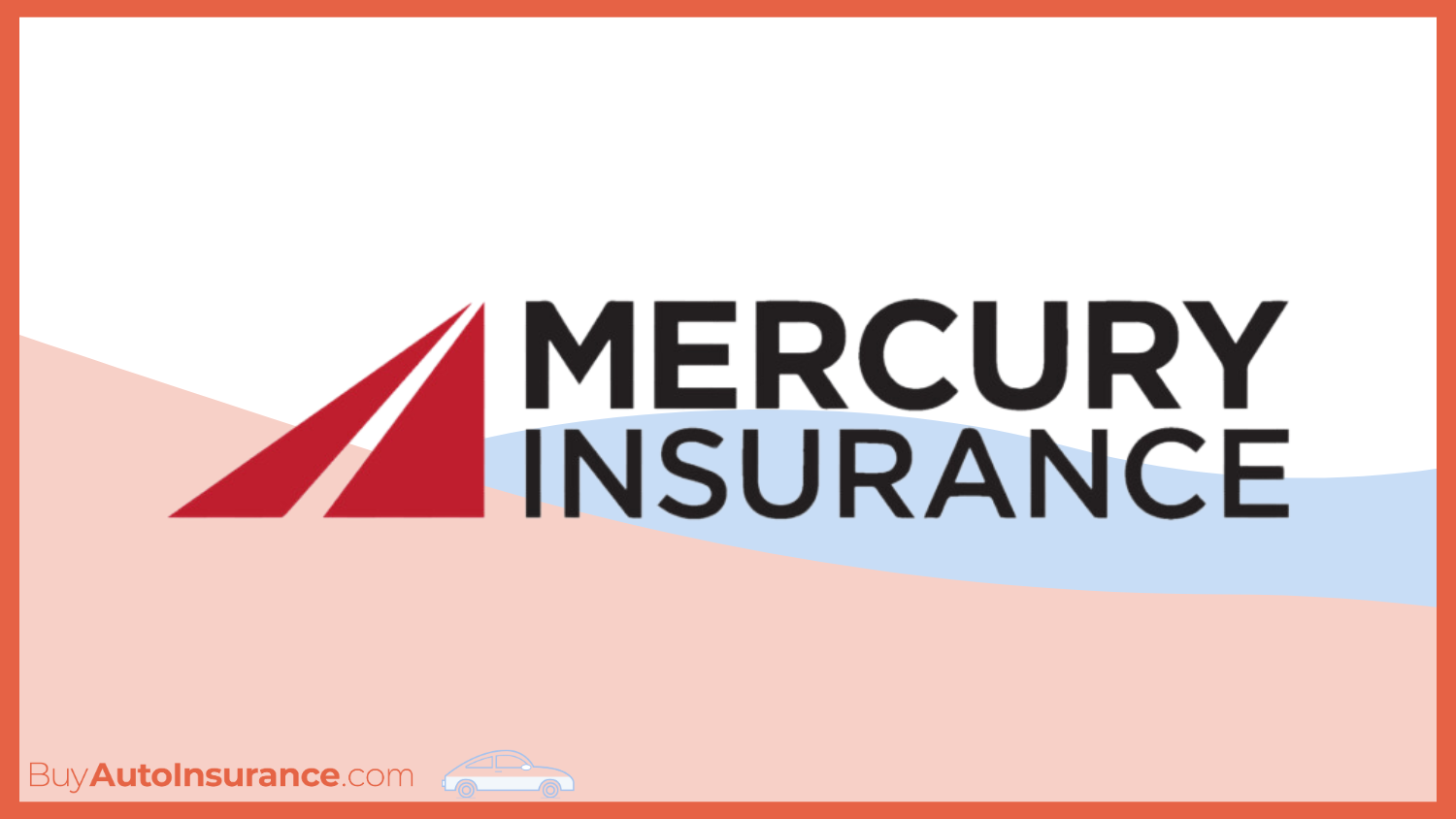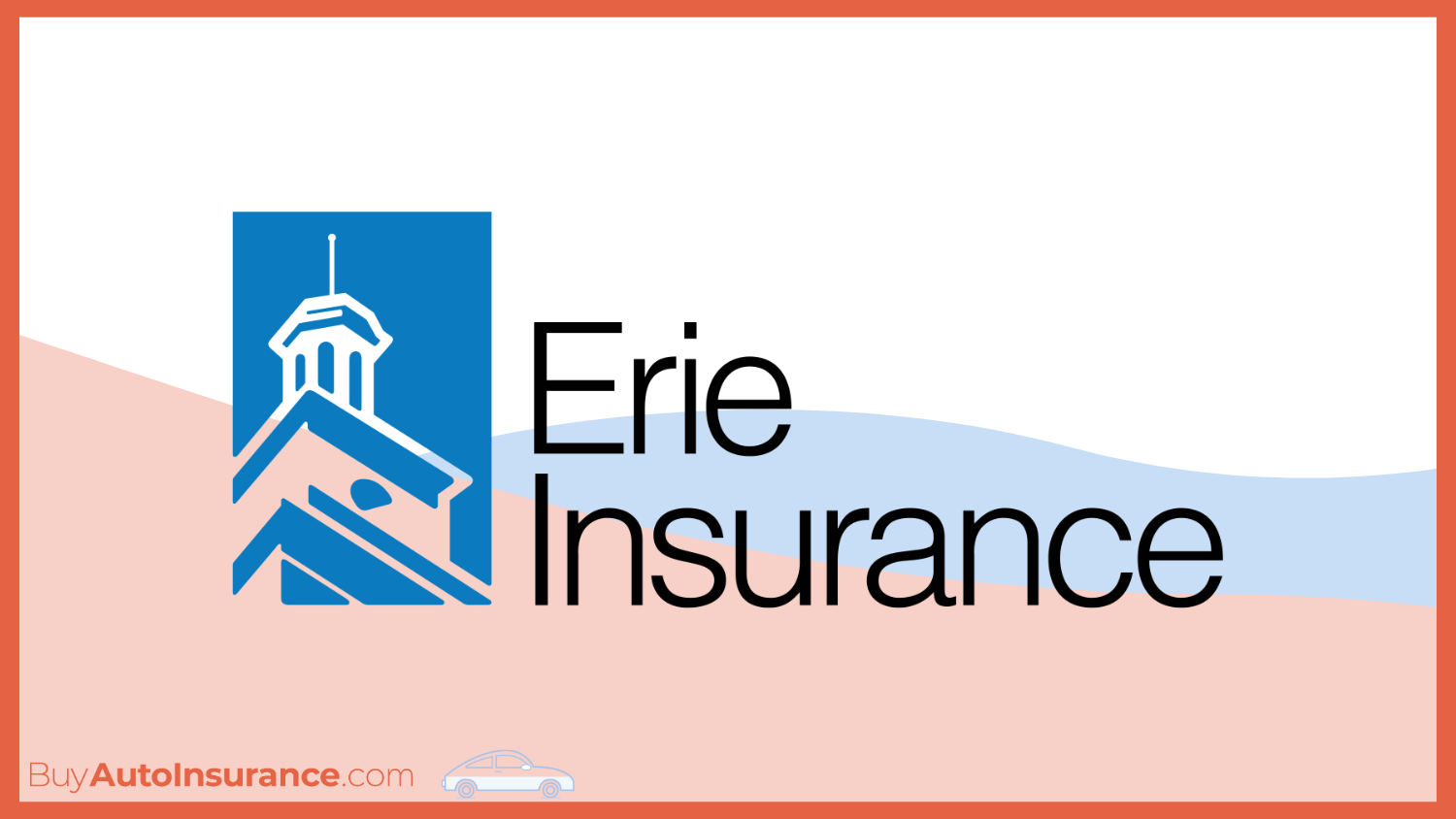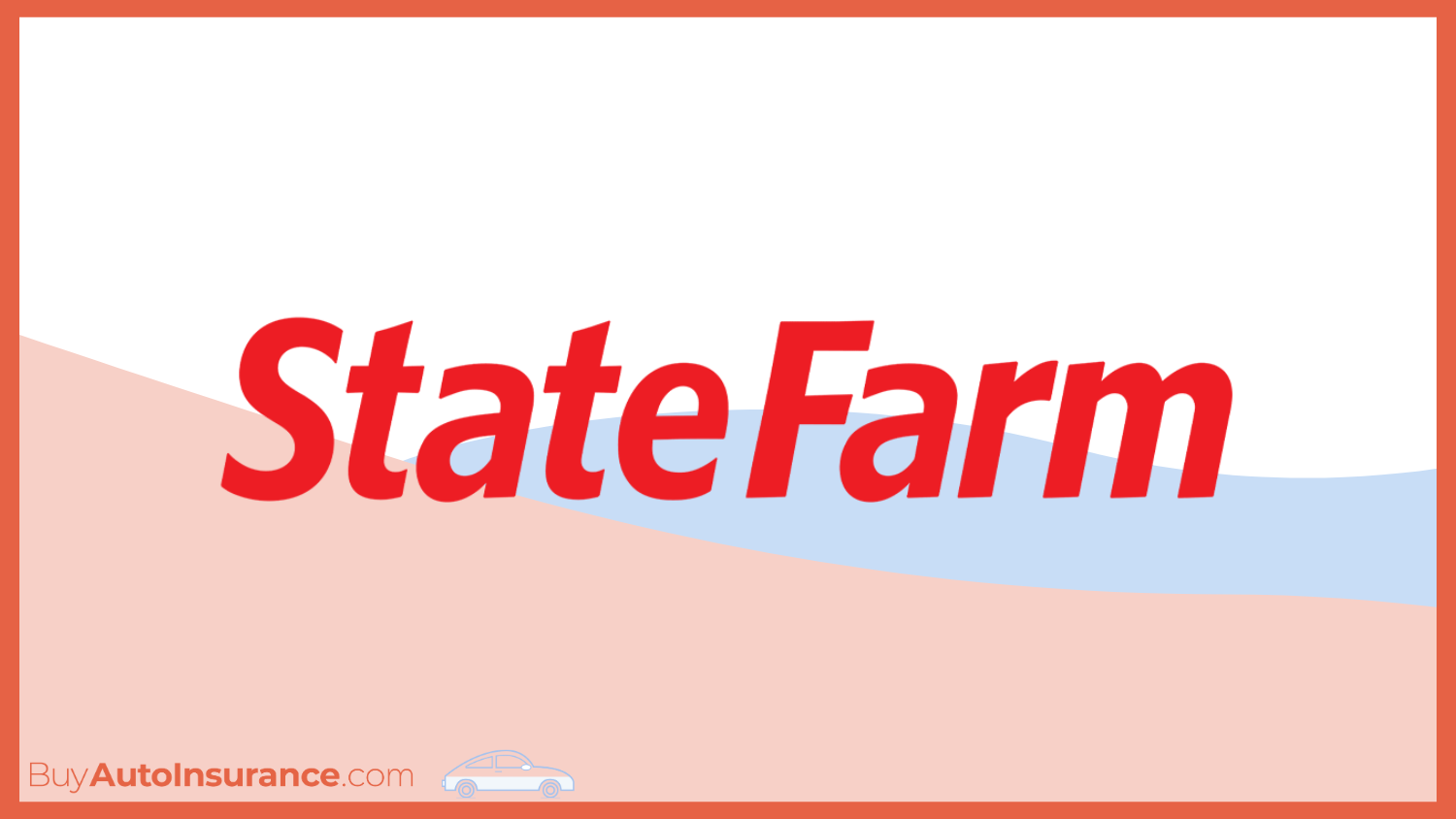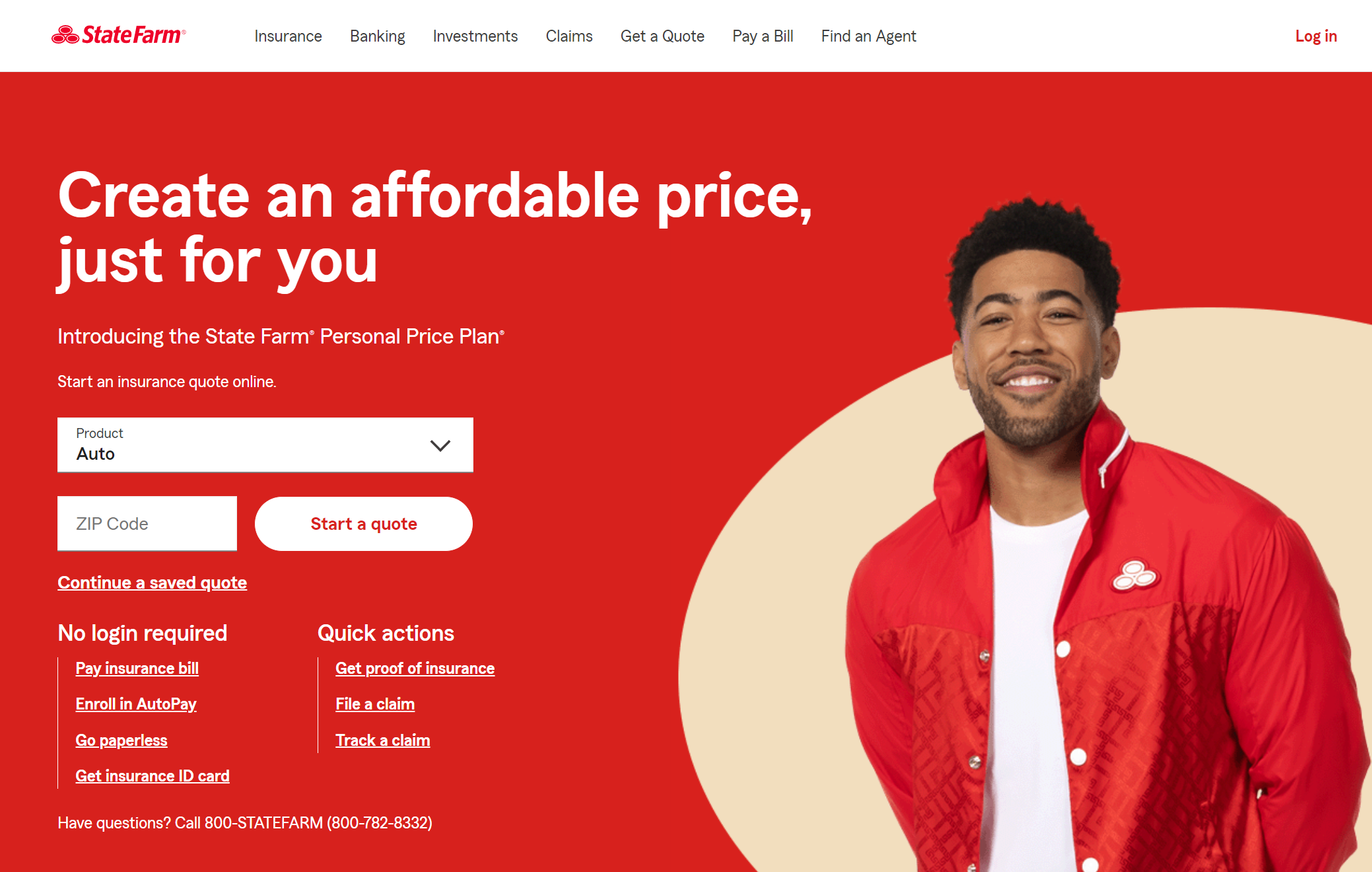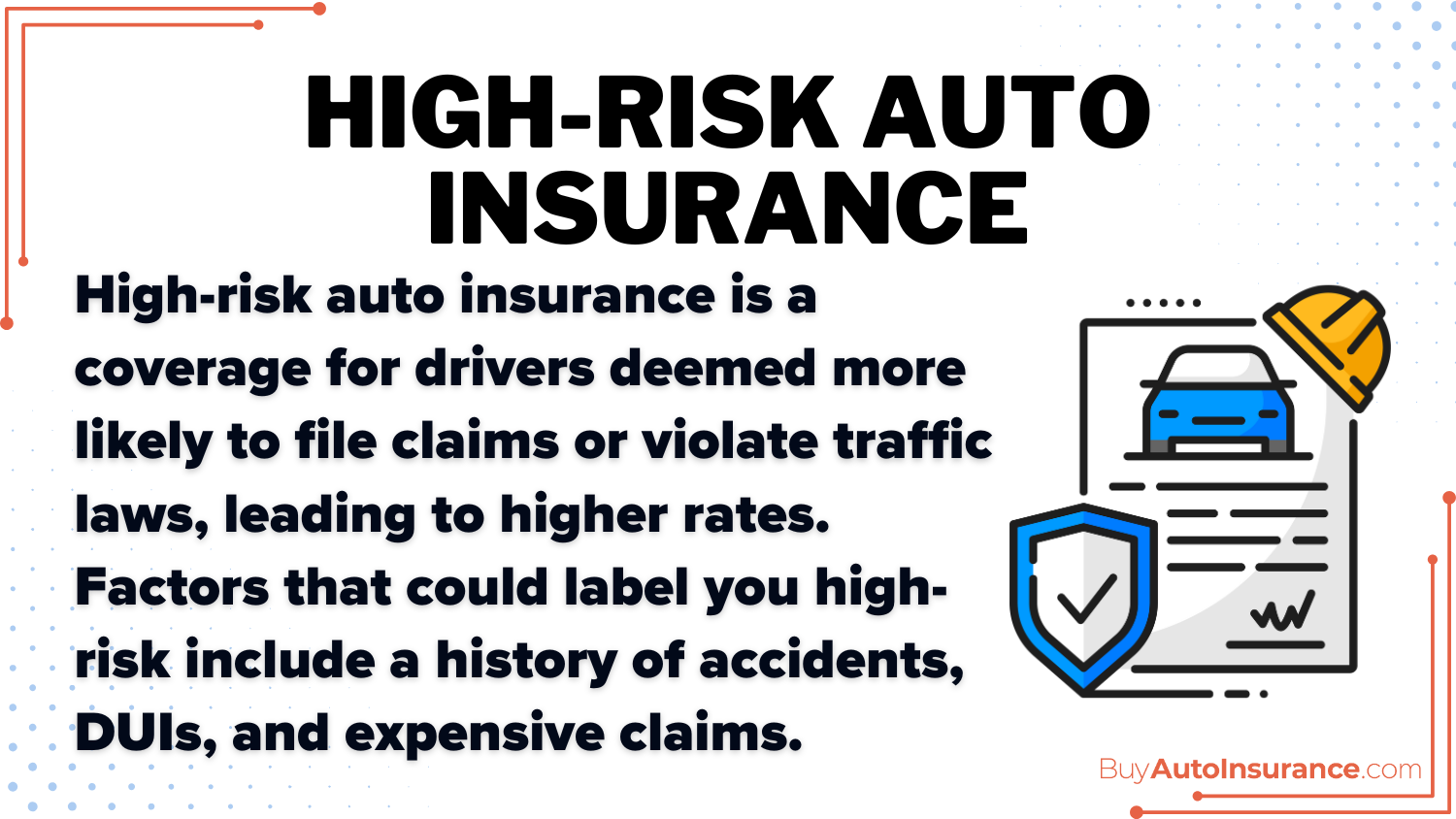5 Best Auto Insurance Companies That Don’t Use LexisNexis in 2025
Root, Metromile, and State Farm are the best auto insurance companies that don't use LexisNexis, with rates starting at $16/month. Car insurance without LexisNexis is hard to find because insurance companies use LexisNexis CLUE reports to gather personal information, assess driver risk, and set monthly rates.
Free Car Insurance Comparison
Compare Quotes From Top Companies and Save
Secured with SHA-256 Encryption
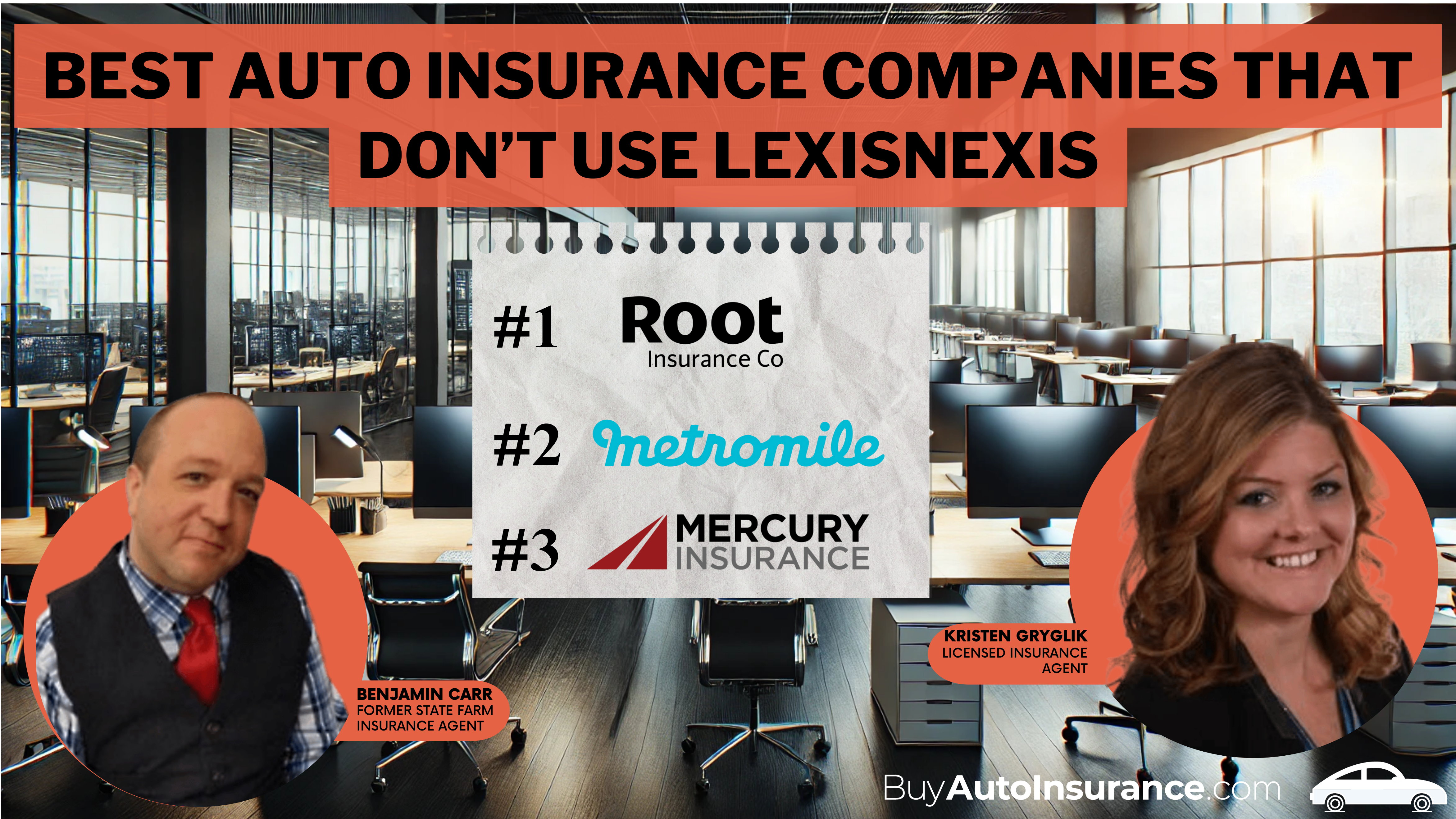
Kristen Gryglik
Licensed Insurance Agent
Kristen is a licensed insurance agent working in the greater Boston area. She has over 20 years of experience counseling individuals and businesses on which insurance policies best fit their needs and budgets. She knows everyone has their own unique needs and circumstances, and she is passionate about counseling others on which policy is right for them. Licensed in Massachusetts, New Hampshire,...
Licensed Insurance Agent
UPDATED: Jan 15, 2025
It’s all about you. We want to help you make the right coverage choices.
Advertiser Disclosure: We strive to help you make confident auto insurance decisions. Comparison shopping should be easy. We are not affiliated with any one auto insurance provider and cannot guarantee quotes from any single provider. Our auto insurance industry partnerships don’t influence our content. Our opinions are our own. To compare quotes from many different auto insurance companies please enter your ZIP code on this page to use the free quote tool. The more quotes you compare, the more chances to save.
Editorial Guidelines: We are a free online resource for anyone interested in learning more about auto insurance. Our goal is to be an objective, third-party resource for everything auto insurance related. We update our site regularly, and all content is reviewed by auto insurance experts.
UPDATED: Jan 15, 2025
It’s all about you. We want to help you make the right coverage choices.
Advertiser Disclosure: We strive to help you make confident auto insurance decisions. Comparison shopping should be easy. We are not affiliated with any one auto insurance provider and cannot guarantee quotes from any single provider. Our auto insurance industry partnerships don’t influence our content. Our opinions are our own. To compare quotes from many different auto insurance companies please enter your ZIP code on this page to use the free quote tool. The more quotes you compare, the more chances to save.
On This Page

Company Facts
Full Coverage for Non-LexisNexis Companies
A.M. Best Rating
Complaint Level
Pros & Cons


Company Facts
Full Coverage for Non-LexisNexis Companies
A.M. Best Rating
Complaint Level
Pros & Cons

Root, Metromile, and Mercury Insurance are the best auto insurance companies that don’t use LexisNexis. Root is the cheapest at $16/month.
LexisNexis gathers analytical data on driver records and credit history and sells it to companies, including car insurance providers. Which insurance companies use LexisNexis? Many use it to collect data on drivers, but these top five providers do not:
Our Top 5 Picks: Best Auto Insurance Companies That Don't Use LexisNexis
| Company | Rank | UBI Discount | A.M .Best | Best For | Jump to Pros/Cons |
|---|---|---|---|---|---|
 | #1 | 52% | NR | Safe Drivers | Root |
| #2 | 30% | A- | Low Mileage | Metromile | |
| #3 | 50% | A | Budget Coverage | Mercury | |
 | #4 | 30% | A+ | Claims Handling | Erie |
| #5 | 30% | B | Insurance Discounts | State Farm |
Read on to find cheap car insurance that doesn’t use LexisNexis. Our free online comparison tool allows you to compare quotes instantly — just enter your ZIP code to get started.
- LexisNexis gathers personal information for use by car insurance companies
- Most insurers use LexisNexis to check your driving and insurance history
- State Farm is the only major car insurance company that doesn’t use LexisNexis
Free Auto Insurance Comparison
Compare Quotes From Top Companies and Save
Secured with SHA-256 Encryption
#1 – Root: Top Pick Overall
Pros
- Cheapest Rates for Safe Drivers: Safe drivers who pass the test drive can save up to 52% on Root auto insurance without LexisNexis.
- Free Roadside Assistance: Roadside assistance is automatically added to Root full coverage insurance policies without LexisNexis.
- No-Credit-Check Auto Insurance: Root never checks credit scores or LexisNexis for insurance rates.
Cons
- Qualifying Test Drive: If you fail the test drive, you cannot buy car insurance from Root. Get more information in our Root auto insurance review.
- Limited Availability: Root car insurance without LexisNexis is only sold in 34 states, although the company plans to expand.
#2 – Metromile: Best for Low-Mileage Drivers
Pros
- Low-Mileage Savings: If you drive less than 10,000 miles a year, you’ll get the best auto insurance rates without LexisNexis from Metromile.
- Cheap High-Risk Insurance: Metromile does not use LexisNexis and only charges per mile, so accidents, speeding tickets, and other driving infractions do not raise rates.
- No-Credit-Check Auto Insurance: Metromile never checks credit scores for auto insurance rates. Learn more in our Metromile Insurance review.
Cons
- Expensive Rates: Despite not using LexisNexis, Metromile is the most expensive company on this list at $44/month.
- Limited Availability: Metromile auto insurance that doesn’t use LexisNexis is only sold in eight states
#3 – Mercury: Best for Budget Rates
Pros
- Competitive Rates: At $29/month, Mercury is one of the cheapest auto insurance companies that don’t check LexisNexis CLUE reports.
- Usage-Based Discounts: Avoid driving record database checks and save up to 50% if you sign up for one of Mercury’s usage-based insurance plans. Learn more in our Mercury Insurance review.
- Catastrophe Insurance Experts: Mercury specializes in insuring high-risk weather areas, and many agents and other staff are certified Community Emergency Response Team members.
Cons
- Poor Customer Service: Mercury is one of the worst companies in the country for claims processing and customer service.
- Limited Availability: You can only buy Mercury Insurance without LexisNexis in 11 states.
Compare Quotes From Top Companies and Save
Secured with SHA-256 Encryption
#4– Erie: Best for Claims Handling
Pros
- High Customer Satisfaction: Erie consistently ranks as the top company that doesn’t use LexisNexis in its region when it comes to claims service and customer interactions.
- Insurance Rate Lock: Drivers can lock in cheap car insurance rates for multiple years up until they make changes to their policy.
- Big Bundling Discounts: Save 25% when you bundle Erie home and auto insurance without LexisNexis.
Cons
- Limited Availability: Erie car insurance without LexisNexis is only available in a handful of states. Find coverage near you in our Erie review.
- Fewer Discounts: Erie offers bigger discounts than most companies, but it has fewer opportunities to save than its competitors.
#5 – State Farm: Best for Many Discounts
Pros
- Many Discounts: Customers can save up to 25% by bundling multiple policies and more. Read our State Farm auto insurance review to see what you qualify for.
- Personalized Service: With over 19,000 agents nationwide, State Farm offers personalized service and customer support.
- Cheaper High-Risk Insurance: State Farm only looks back three years, helping drivers with accidents or claims on their records get lower rates faster than other companies.
Cons
- Still Checks Driving History: State Farm doesn’t use LexisNexis insurance reports but has its own system of analyzing driver data.
- Lower Financial Ratings: Its B rating from A.M. Best could lead to payout issues in the future if you ever need to file an auto insurance claim.
Auto Insurance Rates Without The LexisNexis System
While you can probably find a smaller local provider that doesn’t use LexisNexis, it’s hard to find a larger company that doesn’t. These are the top five auto insurance companies that don’t use LexisNexis:
Auto Insurance Monthly Rates by Coverage Level From Companies That Don’t Use LexisNexis
Company Minimum Coverage Full Coverage
$22 $58
$29 $77
$44 $115
$16 $43
$33 $86
Of all the major companies in the U.S., State Farm is the only one that doesn’t use LexisNexis. Rather than using the LexisNexis case management system, State Farm has developed its own system to assess applicants. Instead of looking at seven years, State Farm considers traffic violations and claims from the last three years.
If you’re interested in skipping LexisNexis, you can get a quote from State Farm. The average cost for full coverage auto insurance with State Farm is around $220, while the national average is $162.
Compare Quotes From Top Companies and Save
Secured with SHA-256 Encryption
The LexisNexis System Explained
How do insurance companies know about previous claims? The answer lies in the partnership between the insurers and data brokers like LexisNexis. It offers car insurance companies a quick and easy way to determine a driver’s riskiness.
LexisNexis analyzes data to predict the likelihood of future claims and reports your last seven years of driving and claims history, including how much your claims cost. Most companies use LexisNexis’ Comprehensive Loss Underwriting Exchange (CLUE) database to access information about drivers.
You might be wondering what shows up in the LexisNexis report. The CLUE database contains information about your insurance claims for the last seven years, including:
- Dates
- Type of loss
- How much your insurance company paid
- Claim numbers
The LexisNexis CLUE report also provides information about which companies you’ve had insurance with and your previous policy numbers.
LexisNexis encourages consumers to look at their CLUE report from time to time to ensure there are no inaccuracies that might drive up their rates due to mistakenly assigned auto insurance points or other errors. You can access a limited version of your CLUE report once a year for free. Any subsequent viewings require you to pay a small fee.
How LexisNexis Collects Data
LexisNexis collects data from a variety of sources, some of which you might not know exist. There are four primary sources that LexisNexis gathers information from:
- Data You Provide: LexisNexis encourages consumers to provide information, including email addresses, social media information, phone numbers, job titles, education, and payment information.
- Data From Organizations: If you’re affiliated with an organization, LexisNexis can collect related data.
- Third-Party Data: LexisNexis collects data from various third-party sources, including social networks, service providers, businesses, and publicly available services.
- Service Use Data: Service use data includes cookies, device information, location detection, educational services, and streaming services.
This is only a small selection of the data LexisNexis collects about you. Most people interact with technology multiple times throughout their day, and LexisNexis capitalizes on this usage by collecting every bit of data it can.
LexisNexis can create a reliable profile of your behavior by analyzing your data.
Daniel Walker Licensed Insurance Agent
Insurance companies use LexisNexis for this reason — your likelihood of being involved in future claims can be reliably predicted from your collected data.
Who Uses LexisNexis Data
What companies use LexisNexis? Insurance providers aren’t the only companies to use LexisNexis. If you’re concerned about your personal data being used, you should know that LexisNexis works with the following industries:
- Insurance providers
- Collection agencies
- Local government programs
- Financial services
- U.S. Department of Homeland Security
As you can see, LexisNexis provides information to a vast network of businesses. Keeping your data out of the hands of collection companies like LexisNexis is difficult, but there are a few things you can do.
You can skip accepting cookies and deny information requests on some websites. You can also skip filling out personal information on some forms. However, there’s only so much you can do to keep your personal information private. In this digital world, companies like LexisNexis can easily gather your data.
Tips to Save on LexisNexis Auto Insurance
Since insurance companies can use LexisNexis for rental history and driving records, you might be worried about how it will affect your rates. It’s true that having previous claims, accidents, or lapses in insurance will make your rates higher, but there are ways to save.
Discounts From the Top Auto Insurance Companies That Don't Use LexisNexis
Insurance Company Available Discounts
Safe Driver, Multi-Policy, Young Driver, Good Student, Safety Features, Low Mileage, Pay-in-Full, Good Driver
Multi-Vehicle, Good Student, Homeownership, Pay-in-Full, Vehicle Safety Features, Good Driver
Safe Driver, Multi-Vehicle, Multi-Policy
Safe Driver, Good Student, Anti-Theft, Pay-in-Full, Multi-Policy, Paperless Billing
Safe Driver, Multi-Line, Good Student, Steer Clear, Drive Safe & Save, Anti-Theft, Vehicle Safety Features
Most companies offer auto insurance discounts for things like buying more than one policy, being a good driver, and having multiple cars. Veterans and active service members may also qualify for a LexisNexis military discount.
Ask about discounted rates for people who drive less than the average driver. Usage-based insurance plans can also save you money. Find out how much you can save in our low-mileage auto insurance discount guide.
Although most insurance companies use LexisNexis to decide how much insurance will cost you, you can keep your rates down by following these tips.
- Compare quotes. You might have high prices with one provider and much lower prices with another. Learn how to get multiple quotes before buying auto insurance.
- Lower your coverage. If your insurance rates are simply too high, you might be able to lower your coverage. Speak with an insurance representative to learn what you can cut.
- Raise your deductible. You can save money on your monthly bill by raising your auto insurance deductible. Be cautious, though — the higher your deductible, the more you’ll have to pay out of pocket.
- Keep your credit score high. Insurance companies can look at your credit scores in most states. Maintaining a good credit score can help lower your rates.
- Switch companies. If your rate jumps after you make a claim, you might need to switch to another company. Most policies don’t have an early cancellation fee, so there’s no reason to stick with high rates.
Many people are alarmed to learn how much of their personal data is collected by systems like LexisNexis. Unfortunately, it’s one of the drawbacks of spending so much time digitally connected. There is a movement to limit how much personal data companies can collect. However, for now, everyone is stuck with LexisNexis driving record checks.
How to Find Auto Insurance Companies That Don’t Use the LexisNexis System
Root, Metromile, and Mercury Insurance are the best auto insurance companies that don’t use LexisNexis. Out of the 10 best auto insurance companies in the country, State Farm is the only major provider that doesn’t use LexisNexis.
Because many insurance companies use the LexisNexis system, you should never lie on an insurance application. They have access to so much of your driving history, so it’s easy to detect a lie, and you could be denied coverage.
Heidi Mertlich Licensed Insurance Agent
LexisNexis Risk Solutions is a company that gathers consumer data through public records and other digital services. You might be surprised to learn how much data LexisNexis can collect on you — everything from what jobs you’ve had to what licenses you possess. If you want to avoid companies that use LexisNexis, check out our guide on buying no-credit-check auto insurance.
State Farm and local insurance providers are your best bet for auto insurance that doesn’t use LexisNexis. If Root and Metromile are available in your state, start comparing rates. Instantly compare car insurance quotes from the top providers near you by entering your ZIP code into our free comparison tool.
Frequently Asked Questions
What insurance companies use LexisNexis?
Most major insurance companies utilize reports from LexisNexis, including the Comprehensive Loss Underwriting Exchange (CLUE) report. The CLUE report provides insurers with a historical overview of claims associated with a person or property, helping insurers assess risk more accurately.
Does Geico use LexisNexis?
Yes, Geico checks LexisNexis CLUE reports to assess driver risk and set rates. Learn more about the company in our Geico insurance review.
What is LexisNexis used for in insurance?
The LexisNexis system is a comprehensive database that companies use to assess risk and determine premiums for auto insurance. It contains information such as driving records, claims history, and other relevant data. Some people prefer insurance companies that don’t use this system because they believe it may lead to lower premiums or because they have concerns about privacy and data security. Read about cheap auto insurance companies that don’t sell your information.
What insurance companies do not use LexisNexis?
Root, Metromile, Mercury Insurance, Erie, and State Farm are the best car insurance companies that don’t use LexisNexis. These providers may have alternative methods for assessing risk and determining premiums, such as using their own proprietary databases or relying on other sources of information.
Do all auto insurance companies use LexisNexis?
Not all car insurance companies use LexisNexis, but many do. Depending on their specific needs and business practices, insurance companies may choose from various other data providers or use their internal systems. State Farm is one such company that uses its own internal data instead of LexisNexis.
Does USAA use LexisNexis?
USAA Insurance does check LexisNexis, but it still is one of the cheapest insurance companies for military families. Compare rates in our USAA review.
Does Erie Insurance use LexisNexis?
Erie does not use LexisNexis, but it may use its own data analytics to gather information about credit history, driving records, and past insurance claims to better understand your driving profile.
Does State Farm use LexisNexis?
No. Instead of LexisNexis, State Farm has developed its own system to assess applicants. How far back do auto insurance companies look? State Farm considers traffic violations and claims from the last three years rather than seven, helping high-risk drivers save money on insurance.
Does Farmers Insurance use LexisNexis?
Farmers Insurance utilizes Equifax and CSC Credit Services for underwriting and risk assessment.
How do you opt out of LexisNexis insurance services?
To opt out of LexisNexis, you need to send a request through their opt-out page or by mail. This requires giving personal ID information to verify yourself and stating which data you want to limit.
Can I pull my own LexisNexis?
Yes, you can request to see any personal information that LexisNexis might hold about you through their consumer disclosure process. This is part of your rights under the Fair Credit Reporting Act (FCRA), which ensures you can request and obtain a copy of your personal data held by consumer reporting agencies.
Does Ford use LexisNexis?
Yes, Ford uses LexisNexis, among other data reporting services, to manage warranty claims, comply with government reporting requirements, and for other purposes related to vehicle history and ownership. Find cheap Ford auto insurance here.
Does Toyota report to LexisNexis?
Toyota collects driving data for Connected Vehicle Services but does not directly report this data to LexisNexis. However, through specific programs like Toyota Insurance, driving data can be shared with LexisNexis. Drivers can opt out of sharing their data with Toyota Insurance via the Toyota app. Learn how to buy cheap Toyota auto insurance.
What cars report to LexisNexis?
Most major car manufacturers report information to LexisNexis, including but not limited to Hyundai, GM, Honda, Ford, and Kia.
How long do insurance claims stay on LexisNexis?
Claims stay on LexisNexis for seven years. Having LexisNexis insurance claims during this time could mean higher risk, affecting policy terms and costs. Learn how to file an auto insurance claim.
What does LexisNexis MVR only mean?
LexisNexis MVR only means the report only provides information from your Motor Vehicle Record, accessed through your state’s Department of Motor Vehicles (DMV).
How do I clear my LexisNexis car insurance history?
To remove your information from LexisNexis, visit their opt-out page and fill out the form. Understand the LexisNexis opt-out pros and cons before you decide. While you may find cheaper rates, not all data is removable, and opting out may affect dealings with companies using LexisNexis for background checks. Some information, like restricted public records and data under the Fair Credit Reporting Act, will still be retained.
Will choosing an auto insurance company that doesn’t use the LexisNexis system guarantee lower premiums?
While car insurance companies that don’t use the LexisNexis system may have different underwriting methods, it doesn’t necessarily guarantee cheaper rates. Premiums are determined by various factors beyond your driving history, including your ZIP code and vehicle make and model. Compare average auto insurance rates by car to learn more.
Are there any drawbacks to choosing insurance companies that don’t use the LexisNexis system?
The potential drawbacks of using auto insurance companies that don’t use LexisNexis are higher premiums and limited options. Many of the best insurance companies on our list are only available in a handful of states and offer very basic policy options, which is inconvenient for most drivers.
What is a good LexisNexis insurance score?
A good LexisNexis insurance score typically ranges from 770 to 997. This score is part of LexisNexis’ Attract™ Insurance Score, and it’s designed to predict the likelihood of an insurance claim being filed within the policy period. The higher the score, the lower the risk perceived by insurers. Compare insurance rates today by entering your ZIP code into our free comparison tool.
Compare Quotes From Top Companies and Save
Secured with SHA-256 Encryption
Kristen Gryglik
Licensed Insurance Agent
Kristen is a licensed insurance agent working in the greater Boston area. She has over 20 years of experience counseling individuals and businesses on which insurance policies best fit their needs and budgets. She knows everyone has their own unique needs and circumstances, and she is passionate about counseling others on which policy is right for them. Licensed in Massachusetts, New Hampshire,...
Licensed Insurance Agent
Editorial Guidelines: We are a free online resource for anyone interested in learning more about auto insurance. Our goal is to be an objective, third-party resource for everything auto insurance related. We update our site regularly, and all content is reviewed by auto insurance experts.

